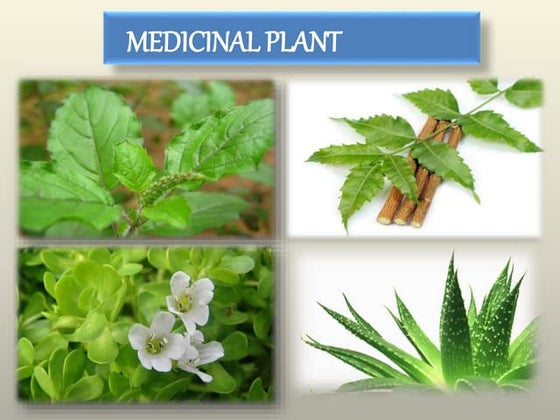108 Glen Osmond Road, Parkside

What is an Allergy?
An allergy refers to a hypersensitive immune system reaction to substances that are usually harmless to most people. These substances, known as allergens, can trigger an allergic reaction when inhaled, ingested, injected, or come into contact with the skin. Common allergens include pollen, dust mites, mold spores, pet dander, food (such as peanuts, tree nuts, milk, eggs, and shellfish), insect stings, and certain medications.
The allergic reaction occurs when the immune system mistakenly identifies a harmless substance as a threat. The first time the body encounters the allergen, it produces a specific type of antibody called immunoglobulin E (IgE) to combat the supposed threat. The IgE antibodies bind to specific cells called mast cells, which are found in various tissues throughout the body, particularly in areas such as the nose, throat, lungs, skin, and gastrointestinal tract.

Upon subsequent exposure to the allergen, it binds to the IgE antibodies on the mast cells, triggering the release of various chemicals, including histamine. Histamine and other chemicals are responsible for the symptoms of an allergic reaction.
Symptoms of an allergic reaction can range from mild to severe and may include:
Allergic reactions can be classified into several types, depending on the mechanism and the time it takes for symptoms to appear after exposure to the allergen. The most common include:
:max_bytes(150000):strip_icc():format(webp)/Health-Allergies-treatment-symptoms-horiz-edit-4-c786d70d651e4d4db0ee900da50ba471.jpg)
Diagnosis and Treatment
The diagnosis of allergies often involves a medical history and physical examination, and may include skin prick tests or blood tests to identify specific allergens.
Treatment can include:
Avoidance of known allergens: This is the most effective way to prevent allergic reactions.
Medications: Such as antihistamines, corticosteroids, and decongestants to relieve symptoms.
Allergen immunotherapy (allergy shots): This involves gradually exposing the body to increasing amounts of the allergen to build up tolerance over time.
Emergency epinephrine: For those with severe allergies, carrying an epinephrine auto-injector (such as an EpiPen) can be life-saving in the event of anaphylaxis.

Ayurvedic Treatment:-
In Ayurveda, allergies are caused by an imbalance of the three doshas (Vata, Pitta, and Kapha). This imbalance can be caused by various factors, including diet, lifestyle, environmental factors, and emotional stress. To treat allergies, Ayurveda recommends a combination of diet and lifestyle modifications, herbs, and other natural therapies.
Diet: Foods that are considered to be cooling and calming should be included in the diet. These include foods such as fruits and vegetables. Foods that aggravate allergies should be avoided, such as processed foods, fried foods, and refined sugars.
Lifestyle Modifications: Stress, lack of sleep, and overexertion can all contribute to an imbalance of the doshas and aggravate allergies. To reduce the symptoms of allergies, it is important to practice stress-relieving activities such as yoga and meditation. It is also important to get enough rest and avoid overworking the body.
Herbs: Certain herbs are used in Ayurveda to help reduce the symptoms of allergies. Some of these herbs include licorice, turmeric, ginger, neem, and bhringraj. Herbal remedies can be taken in the form of teas, tinctures, and capsules:-

1. Amla (Emblica officinalis): Amla is a powerful antioxidant that helps to reduce inflammation caused by allergies. It is also known to boost immunity and help reduce allergic reactions.
2. Guduchi (Tinospora cordifolia): Guduchi helps to reduce inflammation and has anti-allergy properties. It is also effective in treating respiratory allergies and asthma.
3. Turmeric (Curcuma longa): Turmeric has anti-inflammatory and antioxidant properties, which make it effective in treating allergies. It is also known to reduce congestion and help to clear the airways.
4. Licorice (Glycyrrhiza glabra): Licorice is known to reduce inflammation and help relieve the symptoms of allergies, such as sneezing, itchy eyes, and a runny nose.
5. Brahmi (Bacopa monnieri): Brahmi is an antioxidant that helps to reduce inflammation and has anti-allergy properties. It is also known to boost immunity and help reduce allergic reactions.
6. Tulsi (Holy basil): Tulsi is an herb used in Ayurveda to treat allergies. It has anti-inflammatory and antioxidant properties that can help reduce inflammation and prevent the release of histamine, which is responsible for allergy symptoms.

Other Natural Therapies: Other therapies used in Ayurveda to treat allergies include massage, aromatherapy, and marma therapy. These therapies work to restore balance and reduce inflammation in the body.
It is important to consult with an experienced Ayurvedic practitioner before taking any herbs or starting any therapies in order to ensure safe and effective treatment.

Disclaimer : Sandeep Kumar and Anupam Vasudeva are not GP, they have Ayurveda medical degree from India where it is considered equal to any other medical degree. This qualification is recognized in Australia by vetassess governing body as Complementary Health Therapists. Life Line Ayurvedic Herbal Clinic does not claim to cure a disease or terminal illness and does not create any unreasonable expectation of beneficial treatment. Ayurvedic medicines and treatments are generally considered to be safe but rarely may be associated with possible adverse reactions in individual cases. We recommend seeking urgent medical attention in the case of an adverse reaction. This website provides you with information. You must contact your Ayurvedic or another health professional before you apply them. Read More